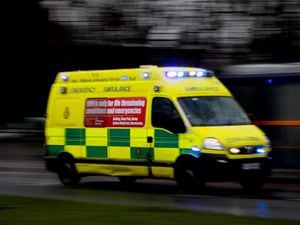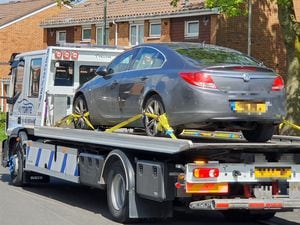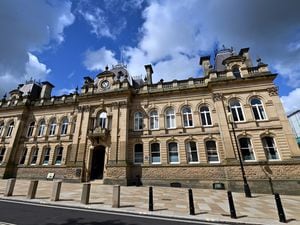Police officers and man who tried to save Wolverhampton crash driver are honoured
Two police officers and a man who tried to revive a motorist after a fatal crash in Wolverhampton have been handed awards for their efforts.

Pcs Dyfell Evans and Daniella Kelly rushed to Newhampton Road East on January 11 after receiving a call.
Sanjeeve Ohri, who lived nearby, had raised the alarm after witnessing the incident – with the man slumped at the wheel.
The three of them pulled the 59-year-old driver – who was not breathing and had no pulse – from his car and tried to resuscitate him in the pouring rain. They each tried to administer CPR to the motorist, but they were unable to restart his heart and he was declared dead at the scene.
Now they have each been awarded national awards by the Royal Humane Society secretary Andrew Chapman for their efforts.
Mr Chapman said: “Sadly they were unable to resuscitate the man, but no-one could have done more than they did.
“In many cases CPR is successful but unhappily not in this case. They did everything they could though and richly deserve the awards they are to receive.”
Paramedics continued to administer CPR for another 20 minutes but to no avail.
Bravery
The roots of the Royal Humane Society stretch back more than two centuries since it first started. The Queen is its patron and its president is Princess Alexandra.
It is the premier national body for honouring bravery in the saving of human life. It was founded in 1774 by two of the day’s eminent medical men, William Hawes and Thomas Cogan. Their primary motive was to promote techniques of resuscitation.
However, as it emerged that numerous people were prepared to put their own lives at risk to save others, the awards scheme evolved, and today a variety of awards are made depending on the bravery involved.
The society also awards non-health care professionals who perform a successful resuscitation – and it has since given out more than 200,000 awards.
It is a registered charity which receives no public funding and is dependent on voluntary donations.





